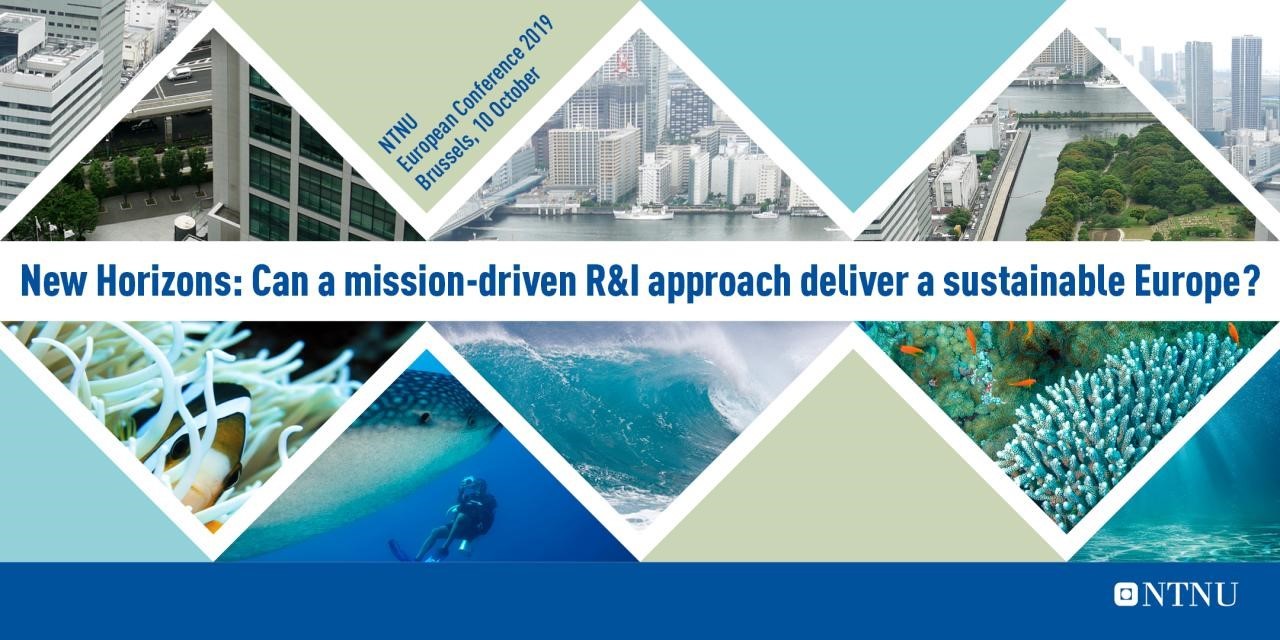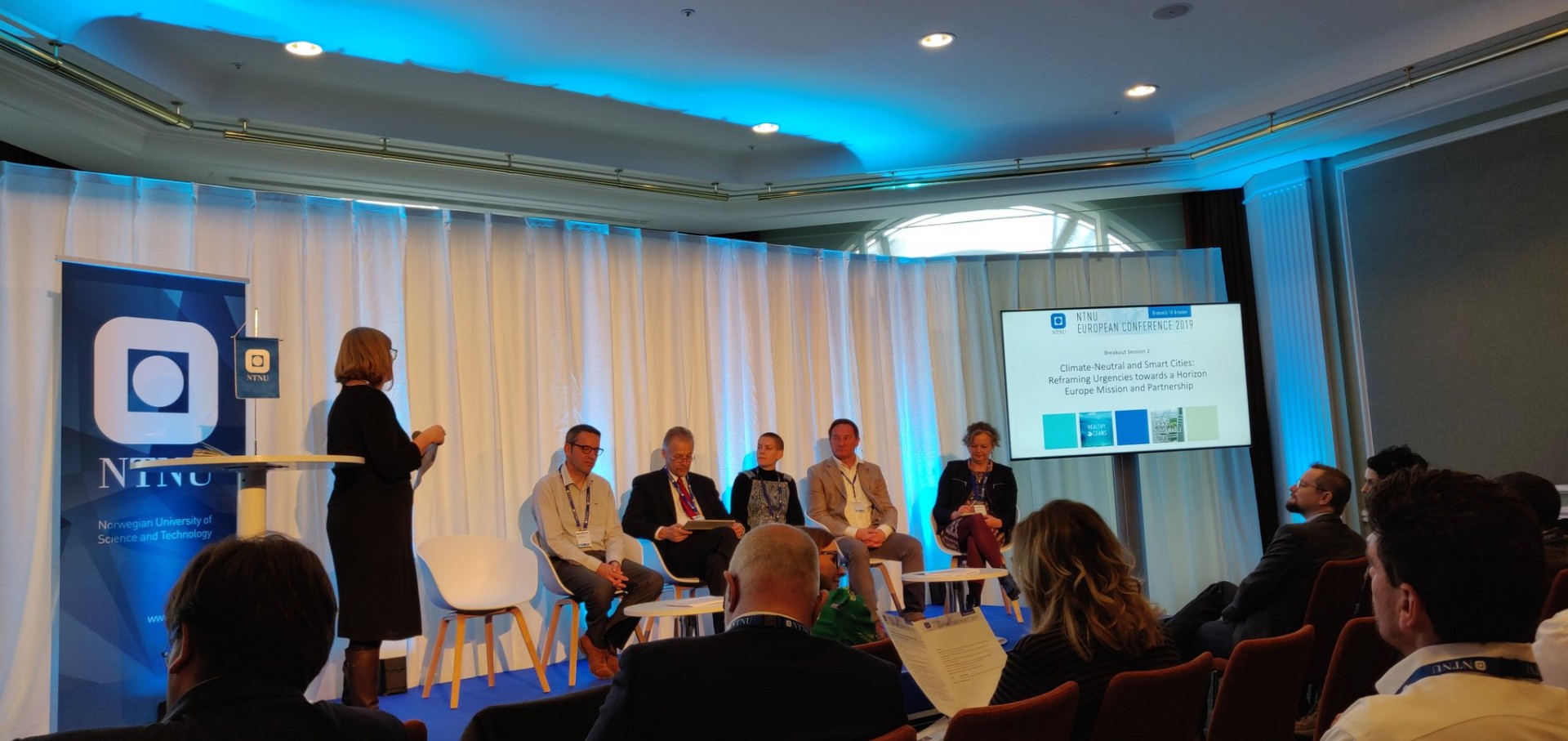An event organised by Norwegian University of Science and Technology (NTNU) explored how mission-driven research and innovation (R&I) approaches in Horizon Europe can deliver a sustainable Europe.
The Norwegian University of Science and Technology (NTNU), a CESAER member, hosted a conference in Brussels titled ‘New Horizons: Can a mission-driven R&I approach deliver a sustainable Europe?’ on 10 October.
The focus was on the role of missions in the next Horizon Europe programme and the way they should be designed. Particular attention was given to ‘Carbon-Neutral and Smart Cities’ and ‘Healthy Oceans and Natural Waters’.

A few highlights from the day are listed below, and impressions from attendees can be found on Twitter through the conference hashtag #TrustScience.
- The importance of supporting both impact-driven and curiosity-driven research was highlighted by Anne Borg (Rector, NTNU). Impact-driven research helps us address urgent challenges, while curiosity-driven research builds the foundation for tomorrow’s understanding and innovation. This was a theme that was repeated throughout the day.
- We must work together to redefine success: no single country has (so far) achieved high human development while staying within planetary bounds. This was one of the key points from Saïd El Khadraoui (European Political Strategy Centre) presentation. He also highlighted a recent report related to this topic, entitled ‘Europe’s sustainability puzzle’.
- A thought-provoking contribution from Mari Sanden and Florian Schneider (Trondheim Academy of Fine Art, NTNU) explored the importance of integrating Arts and Humanities to deliver a sustainable Europe. Especially the need of Arts and Humanities to help build creative confidence, to create platforms for knowledge transfer and exchange, and for co-creating indicators of impact.
- 'Smart city for dummies' – a smart city guidance package showcasing easy-to-follow steps and guidelines for creating smart, sustainable cities was presented by Judith Borsboom-van Beurden (NTNU & lead EIP-SCC). This package is now available online.
Overall, the day explored the societal transformations necessary to achieve a sustainable Europe. It is becoming increasingly clear how researchers, practitioners, decision-makers, funders and civil society must work together to achieve universally accessible and mutually beneficial sustainability. This is a timely discussion which is ongoing in several fora. One prominent example with contributions from our members is this article published in this month’s issue of Nature Sustainability.




